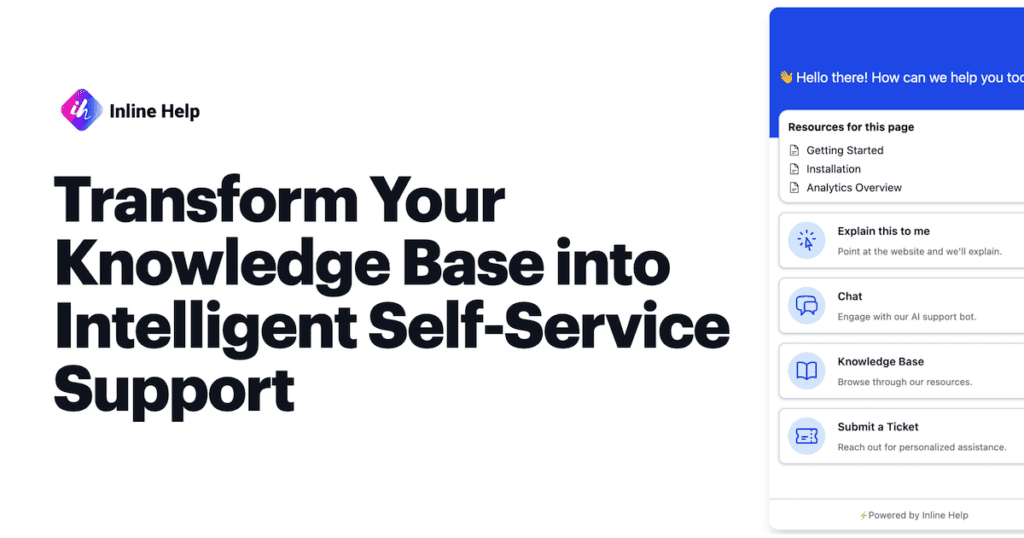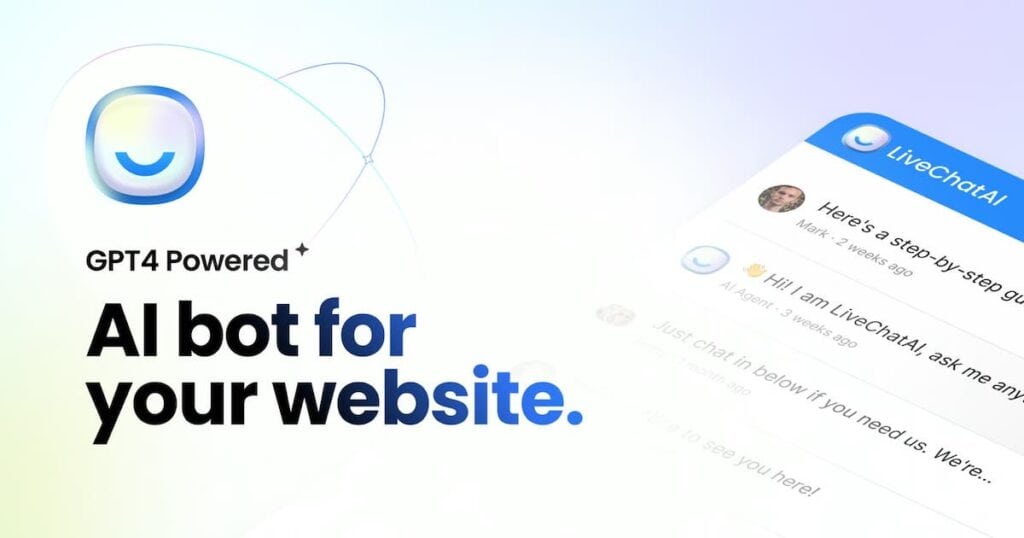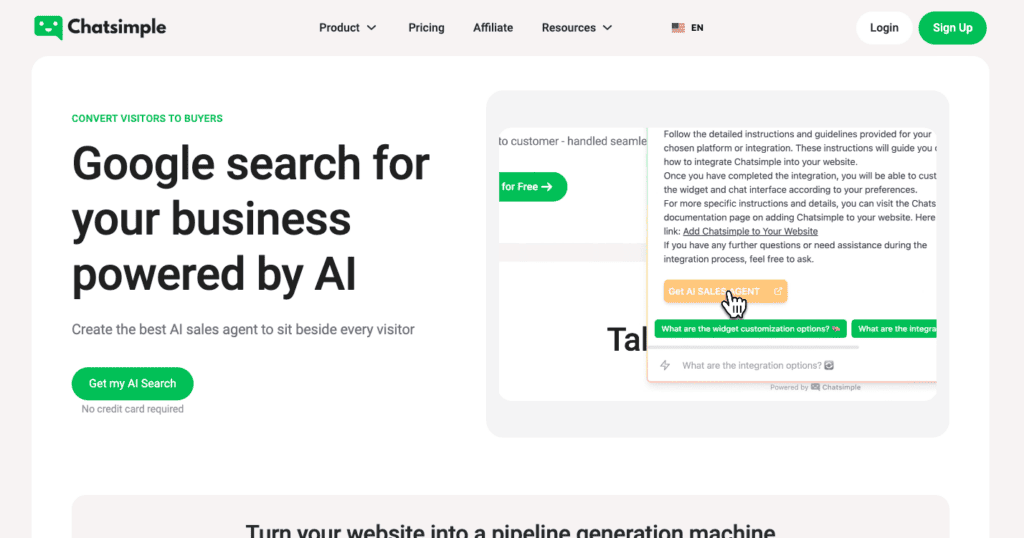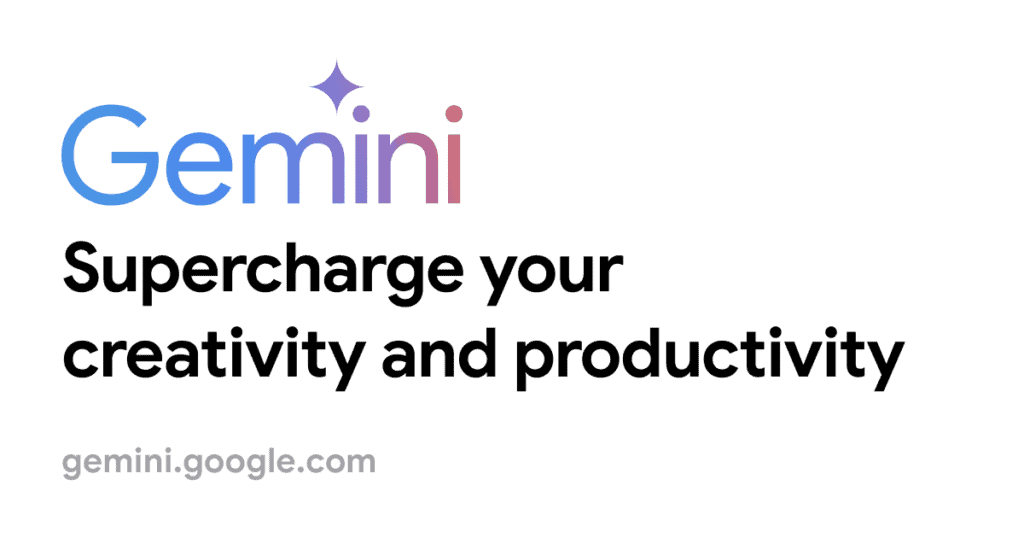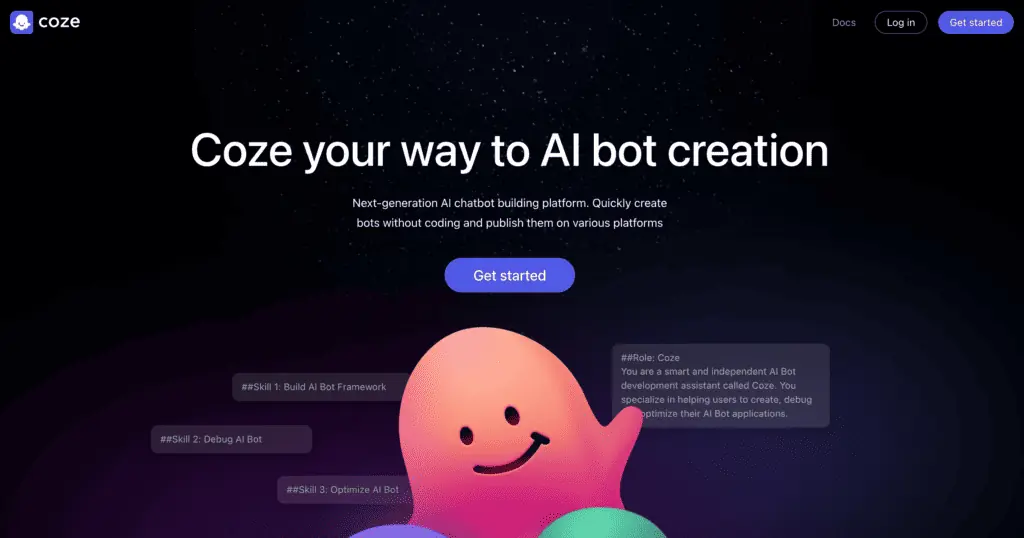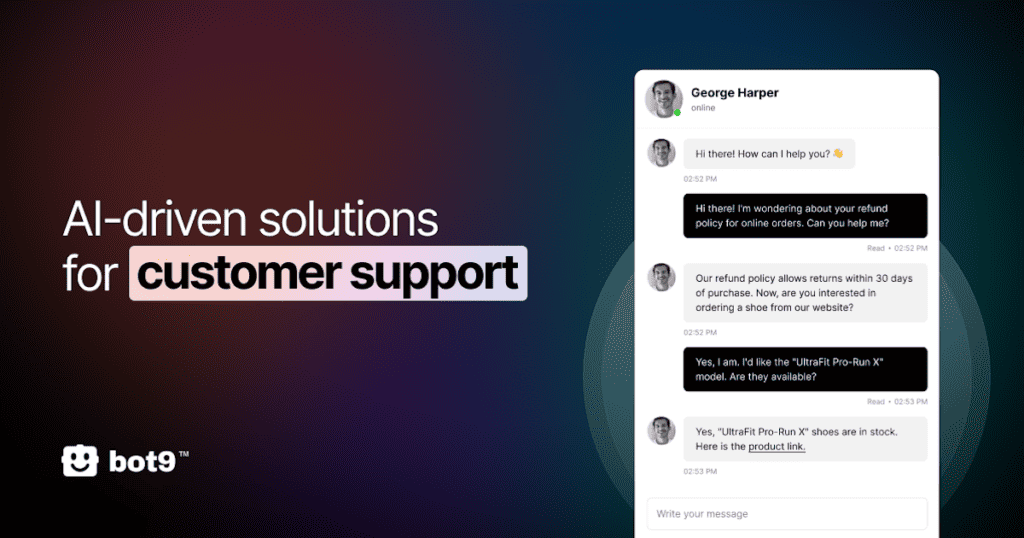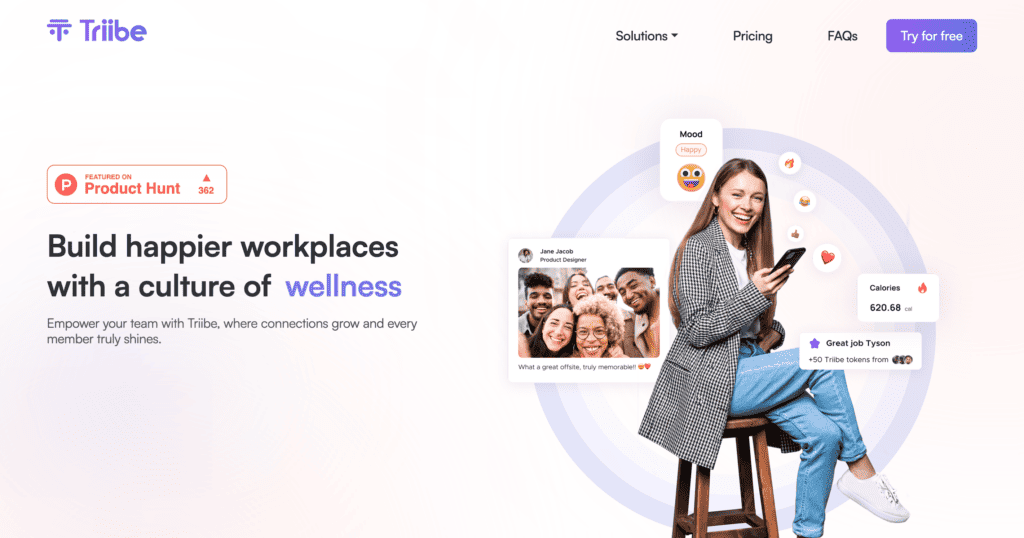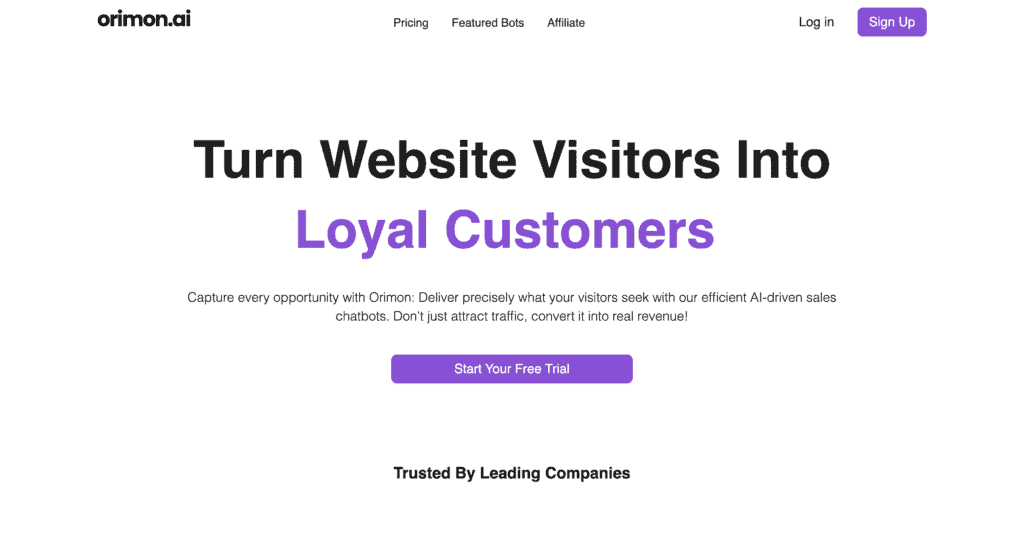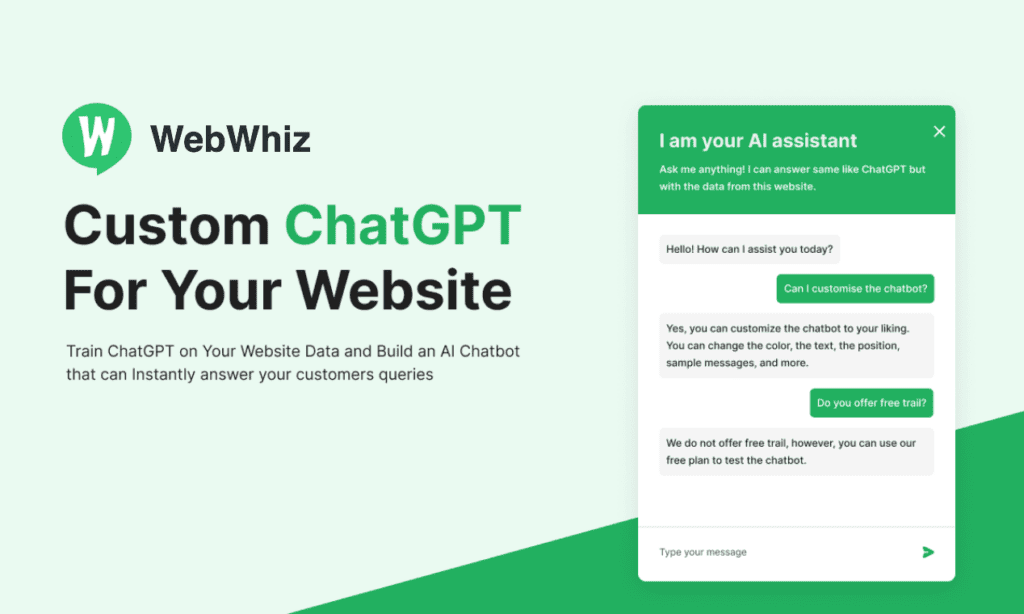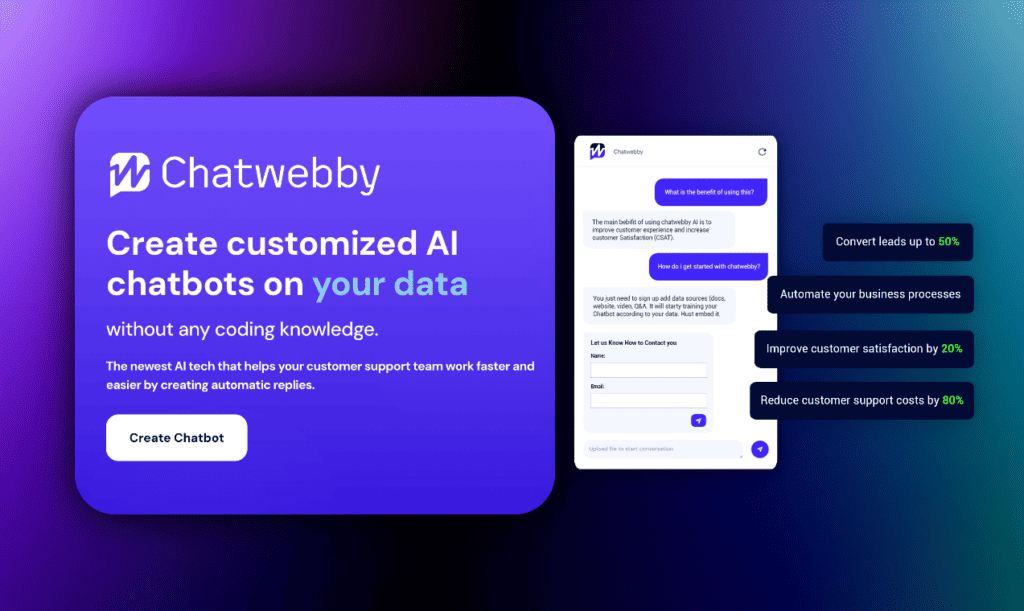CX Genie
Read more about CX Genie

AI chat software has transformed how businesses connect with their customers. These virtual assistants provide personalized interactions at any time of the day, making customer service faster and more efficient. The technology behind these tools is advancing rapidly, offering more human-like conversations that can understand and respond to complex queries.
Businesses of all sizes are adopting AI chat software to enhance their customer service. This technology not only improves the customer experience but also offers significant cost savings by automating routine tasks. It allows human agents to focus on more complex issues, increasing overall productivity.
The integration of AI chat software into customer support strategies has become a game-changer. Companies are now able to offer 24/7 support, significantly improving customer satisfaction and loyalty. Moreover, the ability to gather and analyze customer data helps businesses tailor their services and products to meet customer needs better.
The capabilities of AI chat software continue to evolve, promising even more innovative ways to engage with customers. This technology is not just a trend but a fundamental shift in the approach to customer service, setting a new standard for business operations worldwide.
AI chat software, the cornerstone of modern customer service, uses advanced algorithms to simulate human-like conversations with users. This technology has made significant strides, becoming more sophisticated and capable of handling a wide range of tasks, from answering FAQs to conducting transactions.
The appeal of AI chat software lies in its versatility and efficiency. By automating initial customer interactions, businesses can provide instant responses to inquiries, improving the customer experience while reducing the workload on human agents. This blend of technology and human touch is redefining the landscape of customer service.
Conversational AI is at the heart of AI chat software, enabling virtual agents to understand, process, and respond to human language naturally. This breakthrough in natural language processing (NLP) allows these agents to engage in meaningful conversations, making them more relatable to users.
These virtual agents are not just limited to customer service; they extend their capabilities to various sectors, including healthcare, finance, and education, showcasing their flexibility and adaptability. The power of conversational AI lies in its ability to learn from interactions, continuously improving its responses and functionality.
AI chatbots have become an integral part of modern businesses, revolutionizing the way they interact with customers. Their ability to provide immediate, around-the-clock assistance has set a new standard in customer service, greatly enhancing customer satisfaction.
These chatbots are not just confined to answering simple questions. They can perform a range of tasks, from scheduling appointments to providing personalized recommendations, demonstrating their value across various customer interaction points. The adoption of AI chatbots has allowed businesses to scale their customer service operations efficiently, meeting the growing expectations of their customers.
Choosing the right AI chat software can be daunting, but focusing on key features such as integration capabilities, multilingual support, and customization options can guide your decision. It’s essential to select software that aligns with your business needs and can grow with your company, providing a seamless customer experience.
When selecting AI chat software, look for advanced integration capabilities with platforms like Google Sheets and the availability of a paid plan for more comprehensive features. Multilingual support is crucial for global reach, and customization options allow you to tailor the chat experience to your brand. These features are key to leveraging AI chat software effectively in your business strategy.
One of the most valuable features of AI chat software is its ability to integrate seamlessly with existing business systems and platforms. This includes everything from CRM systems to integrated development environments, allowing for a streamlined workflow that enhances productivity and efficiency.
The integration extends to various third-party applications, enabling businesses to connect their AI chat software with tools like Google Sheets for real-time data syncing. This capability ensures that virtual agents have access to the most current information, providing accurate and relevant responses to user inquiries.
AI chatbots with multilingual support open up global markets for businesses, breaking down language barriers that can hinder customer interaction. Offering support in multiple languages ensures that businesses can cater to a diverse customer base, enhancing the user experience for non-English speakers.
The ability to communicate in the customer’s native language not only improves engagement but also builds trust and loyalty. Multilingual AI chatbots are an essential feature for companies looking to expand their reach and establish a strong international presence.
Customization options in AI chat software allow businesses to provide a unique and branded chat experience. From custom greetings to branded interfaces, these options ensure that the chatbot aligns with the company’s image and values, providing a seamless experience for the user.
Beyond aesthetics, customization also includes tailoring the chatbot’s responses and behavior to fit specific business needs, enhancing its effectiveness in engaging with customers. The ability to customize ensures that AI chat software not only meets the immediate needs of the business but also adapts to future changes and challenges.
Adopting AI chat software brings numerous benefits to your business. It enhances customer service by providing instant, 24/7 support, streamlining operations, and reducing costs associated with traditional customer service methods. The scalability and efficiency of AI chatbots make them an invaluable asset for businesses aiming to improve their customer interaction and satisfaction levels.
AI assistance in chat software elevates customer service to new heights. By offering immediate responses and personalized interactions, AI chatbots ensure that customers feel heard and valued. This level of service increases customer satisfaction and loyalty, setting businesses apart from their competitors.
The ability of AI chatbots to handle multiple inquiries simultaneously also means that no customer is left waiting. This efficiency not only improves the customer experience but also frees up human agents to tackle more complex issues, ensuring that all customer needs are met promptly and effectively.
Integrating AI chatbots into business operations streamlines various processes, from handling customer inquiries to managing appointments. This automation reduces the need for extensive human intervention, lowering operational costs and improving overall efficiency.
The scalability of AI chatbots allows businesses to easily adjust to varying levels of customer inquiries, ensuring consistent service quality during peak times without the need for additional staff. This adaptability makes AI chatbots a cost-effective solution for businesses seeking to optimize their operations and enhance their customer service.
As we explore the landscape of AI chat software, it’s clear that these tools have become essential for businesses looking to stay competitive. The advancements in conversational AI and the integration of these technologies into customer service strategies have set a new standard in customer interaction. The future looks promising for AI chat software, with innovations aimed at making these tools even more intuitive and effective in meeting both business and customer needs.
ChatGPT has transformed the way we interact with technology, making tasks like writing emails more efficient and helping to build secure digital environments. Its ability to understand and generate human-like text has revolutionized customer service, providing quick and accurate responses to user inquiries.
ChatGPT stands out for its advanced language understanding, enabling it to handle a wide range of tasks from customer support to content creation. Its ability to learn from interactions makes it an invaluable tool for businesses looking to automate responses and engage with customers on a deeper level. Moreover, ChatGPT’s flexibility allows it to be customized for various industries, making it a versatile solution for many business needs.
Beyond customer service, ChatGPT is instrumental in educational environments, where it can assist in tutoring and answering student queries. Its adaptability and ease of use make it an excellent tool for companies aiming to improve their operational efficiency and provide value to their customers through innovative AI chat solutions.
Microsoft Bing AI elevates the search experience by integrating bing chat capabilities, offering users more accurate and conversational interactions with search engines. It combines the vast data repository of Bing with advanced AI technologies to provide answers that are not only relevant but also contextual.
The integration of Bing with AI chat capabilities introduces a more intuitive search experience. Users can now engage in a dialogue with Bing, asking follow-up questions and refining their queries in a natural, conversational manner. This advancement reduces the time spent sifting through irrelevant results, making information retrieval faster and more efficient.
Moreover, Microsoft Bing AI’s understanding of complex queries and its ability to provide precise answers has made it a go-to resource for researchers, students, and professionals alike. Whether it’s for academic research, market analysis, or simple curiosity, Bing’s AI-driven chat interface offers a streamlined and interactive approach to online searches.
Google Bard emerges as Google’s innovative response to the growing demand for conversational AI, designed to make interactions with digital platforms as seamless as talking to a human. This tool leverages Google’s extensive knowledge graph and machine learning algorithms to provide accurate, conversational responses to user queries.
Google Bard is seamlessly integrated with an array of Google products, enhancing the utility and accessibility of services like Gmail, Google Docs, and Google Search. This integration allows users to employ Bard within familiar environments, improving productivity and streamlining workflows. For instance, users can generate email drafts in Gmail or summarize content in Google Docs using Bard’s sophisticated language models.
The synergy between Bard and Google’s ecosystem not only enriches the user experience but also fosters a more cohesive digital workspace. By leveraging Bard’s capabilities, users can perform a variety of tasks more efficiently, from scheduling meetings in Google Calendar to searching for information within Google’s suite, all through conversational AI interactions.
Jasper Chat, powered by the latest iterations of GPT-3 and GPT-4, has become a cornerstone in AI-driven content creation. It offers unparalleled support in generating ai content, from blog posts to video scripts, all through a simple input of a prompt. Jasper Chat’s sophisticated algorithms ensure the content is not only high-quality but also tailored to the specific needs of its users.
The advent of Jasper Chat has significantly streamlined the content creation process. By understanding the nuances of language and industry-specific terminology, Jasper can produce content that resonates with the intended audience. Its ability to generate creative and engaging material from a mere prompt has opened up new possibilities for marketers, content creators, and businesses aiming to establish a strong online presence.
Furthermore, Jasper Chat’s integration with GPT-3 and GPT-4 enhances its ability to craft compelling narratives and informative content that aligns with the latest SEO trends. This makes Jasper an essential tool for anyone looking to leverage AI content to boost their digital marketing efforts, ensuring their message cuts through the noise and reaches their target audience effectively.
Anthropic’s Claude has redefined efficiency in processing and summarizing extensive documents. With its advanced AI algorithms, Claude 2 and Claude Instant can quickly distill lengthy texts into concise summaries, allowing users to grasp key points without sifting through pages of information. This capability is particularly beneficial for professionals and students who require rapid assimilation of complex materials.
Claude’s summarization tools are designed to enhance productivity by providing swift and accurate summaries of documents, emails, and articles. Its ability to understand context and extract relevant information makes it an invaluable asset for anyone looking to save time and focus on critical aspects of their work or studies.
Moreover, the use of Claude in academic and professional settings underscores its versatility and effectiveness in various domains. Whether it’s for compiling research, analyzing reports, or preparing for presentations, Claude’s AI-powered summarization tools streamline the information gathering process, enabling users to achieve more in less time.
As the realm of AI chat software expands, it caters to a broad spectrum of specialized needs, ranging from educational support to open-source development platforms. This diversification ensures that regardless of the task at hand, there is likely an AI chat solution designed to facilitate and enhance the process, thereby democratizing access to advanced technology across various sectors.
Socratic by Google stands as a testament to the power of AI in transforming the educational landscape. Leveraging technology akin to Khan Academy, Socratic offers a tailored learning experience, providing students with instant access to information and explanations on a wide range of topics. This tool epitomizes the potential of AI to augment the learning process, making education more accessible and engaging for students worldwide.
Socratic by Google simplifies the learning and information gathering process by offering instant answers and explanations to complex questions. Its integration with reputable sources and educational platforms ensures that the information provided is not only accurate but also up-to-date. This immediate access to knowledge empowers students to explore subjects more deeply and clarifies difficult concepts without the need for extensive research.
Moreover, Socratic’s intuitive interface and personalized learning recommendations encourage continuous exploration and curiosity among users. By adapting to each user’s learning style and pace, Socratic facilitates a more personalized education experience, making it an indispensable tool for students seeking to enhance their understanding and academic performance.
HuggingChat emerges as a beacon for innovation in the open-source community, offering a platform where developers can collaborate, share, and enhance AI chat technologies. Its commitment to open-source principles ensures that advancements in AI chat software are accessible to all, fostering a culture of collective progress and innovation.
The ethos of HuggingChat revolves around leveraging the collective intelligence of its community to drive advancements in AI chat software. By providing a space for developers to experiment, iterate, and deploy AI models, HuggingChat ensures that cutting-edge solutions are developed in a collaborative and inclusive environment. This approach not only accelerates innovation but also democratizes access to powerful AI technologies.
Furthermore, HuggingChat’s commitment to open-source development encourages transparency and accountability, essential components for building secure and reliable AI systems. As more developers contribute to and benefit from HuggingChat’s repository, the platform continues to evolve, pushing the boundaries of what’s possible with AI chat technology and shaping the future of digital communication.
YouChat emerges as a critical tool for users who demand quick, accurate answers to their queries. It’s designed to understand and process natural language, making it easier for you to find information without sifting through countless web pages. Whether you’re looking for the latest news, researching a topic, or need help with homework, YouChat offers a streamlined, conversational approach to search.
YouChat stands out by transforming traditional search methods into interactive conversations. Instead of presenting you with a list of links, it directly provides concise, contextually relevant answers. This capability not only saves time but also enhances your understanding by simplifying complex information into digestible responses.
Moreover, YouChat continuously learns from interactions, improving its ability to deliver precise information over time. This adaptability ensures that the gap between your questions and the information you seek narrows, making your search experience more efficient and enjoyable.
Chatsonic is revolutionizing the way writers create content. By leveraging advanced AI, it offers real-time suggestions, research assistance, and stylistic recommendations, making it an indispensable tool for bloggers, journalists, and authors alike. Its intuitive interface and ability to generate high-quality drafts quickly means you can focus more on creativity and less on the drudgery of research and editing.
Chatsonic’s AI-driven insights help you identify trends, gather accurate data, and understand complex topics swiftly. This means you can produce content that’s not only engaging but also rich in information and easy to read. Whether you’re crafting an in-depth article or a simple blog post, Chatsonic ensures your writing is impactful and audience-centric.
Furthermore, its plagiarism checking and grammar suggestions elevate the quality of your work, ensuring it’s original and error-free. By integrating Chatsonic into your writing process, you’re not just speeding up content creation; you’re enhancing its overall quality, relevance, and appeal to your readers.
For developers, GitHub Copilot represents a significant leap forward. Integrated directly into Visual Studio Code, this AI-driven tool offers code completions, suggests entire lines or blocks of code, and helps debug in real-time. It’s like having a seasoned developer by your side, guiding you through complex coding tasks and accelerating your project’s development.
GitHub Copilot goes beyond simple autocomplete features. It understands the context of your project, offering suggestions that fit your current work and helping you navigate through coding challenges with ease. This not only makes coding more efficient but also serves as a learning tool, exposing you to new methods and best practices.
Moreover, its integration with Visual Studio Code means that these advanced capabilities are available within a familiar and widely used Integrated Development Environment, reducing the learning curve and enhancing your coding experience. Whether you’re working on a small project or a large enterprise application, GitHub Copilot adapts to your needs, making it easier to write high-quality source code faster.
In the ever-evolving landscape of customer support, AI chat software plays a pivotal role in bridging the gap between human and AI conversations. These technologies enable a seamless integration, where AI handles routine inquiries, allowing human agents to focus on more complex issues. This synergy enhances the overall customer experience, making interactions more efficient and personalized.
Moreover, AI chat solutions are constantly learning from each interaction, improving their ability to understand and respond to customer needs over time. This ongoing improvement means that businesses can continually offer better support, adapting to changing customer expectations and demands.
The integration of AI chat software with human support teams creates a dynamic, flexible support system. AI can filter and handle straightforward queries, escalating more nuanced issues to human agents. This not only streamlines the support process but also ensures that customers receive the most appropriate level of assistance for their inquiries.
Additionally, AI assistance provides agents with real-time information and suggestions, enhancing their ability to resolve issues quickly and effectively. This collaborative approach leverages the strengths of both AI and human intelligence, leading to higher satisfaction rates and stronger customer relationships.
Looking ahead, the role of AI in customer support is set to become even more integral. AI technologies will offer more personalized, anticipatory support, predicting customer needs and resolving issues before they escalate. This proactive approach not only improves efficiency but also significantly enhances the customer experience.
Furthermore, as AI systems become more sophisticated, they will be able to handle a broader range of tasks, further reducing the reliance on human agents for routine inquiries. This shift will allow businesses to allocate their human resources more effectively, focusing on areas where human empathy and understanding are irreplaceable.
Deploying AI chat software involves careful planning and strategy to ensure successful integration into existing systems. Selecting the right platform, tailoring it to meet specific business needs, and training staff on its use are crucial steps. This process ensures that the software effectively enhances customer interaction, streamlines operations, and aligns with overall business objectives.
Moreover, a phased rollout can help in identifying potential issues early, allowing for adjustments before a full-scale implementation. This approach minimizes disruptions and maximizes the effectiveness of the AI chat solution, ensuring a smooth transition for both employees and customers.
To effectively implement AI chatbots, businesses must first define clear objectives and understand the needs of their target audience. This understanding guides the customization of chatbots, ensuring they provide relevant and valuable interactions. Training the chatbot with a wide range of scenarios and continuously updating its knowledge base are also key to maintaining a high level of accuracy and relevance in responses.
Furthermore, integrating chatbots with existing customer service platforms and databases allows for a more seamless experience, providing users with comprehensive support. Monitoring performance and gathering user feedback are essential for ongoing improvement, ensuring that the chatbot remains an effective tool for engaging and assisting customers.
Success in AI chat implementation can be measured through various metrics, such as customer satisfaction scores, resolution times, and the volume of queries successfully handled by the AI. These indicators help businesses assess the effectiveness of their AI chat solutions in enhancing customer support and streamlining operations.
Additionally, analyzing user feedback provides valuable insights into areas for improvement, ensuring that the AI chat software continues to meet and exceed customer expectations. Regularly reviewing these metrics and making necessary adjustments is crucial for maintaining the relevance and effectiveness of AI chat solutions.
Investing in AI chat software is a significant step towards innovation, but it comes with its costs. Initial setup, customization, and ongoing maintenance require financial resources, and businesses must weigh these costs against the expected benefits. However, the potential for improved customer satisfaction, increased efficiency, and cost savings over time often justifies the investment.
Moreover, as AI technologies continue to evolve, the cost of implementing and maintaining AI chat solutions is likely to decrease, making it more accessible to businesses of all sizes. Staying ahead in the competitive landscape requires embracing such innovations, and the long-term gains can significantly outweigh the initial expenses.
When exploring AI chat software, you’ll encounter various pricing models designed to fit different business needs. A common starting point is the limited free plan, offering basic features with no cost, perfect for small enterprises or those new to AI chat technology. As your needs grow, upgrading to a pro plan becomes essential, unlocking advanced features and higher usage limits. Premium plans are available for businesses requiring the utmost in customization and support, catering to those with specific, high-demand use cases.
It’s crucial to understand that models on the market vary significantly, with some focusing on per-user pricing while others charge based on the volume of interactions. This range ensures that whether you’re a startup or a large corporation, there’s a model that fits your budget and usage needs. By carefully assessing your requirements against what each plan offers, you can find a cost-effective solution that doesn’t compromise on quality or functionality.
As we look forward, the landscape of AI chat software is poised for groundbreaking advancements. Innovations in machine learning and natural language processing will drive these tools to understand and respond with even greater accuracy and human-like nuance. The integration of AI chatbots across more platforms and industries signifies a move towards universally accessible, highly intelligent customer service solutions.
Moreover, the ongoing development in conversational AI will enable these systems to handle more complex interactions, making them indispensable in customer support and engagement strategies. The future of AI chat software is not just about technological evolution but also about reshaping how businesses connect with their customers on a global scale.
Looking closely at the near future, several trends stand out in the AI chat technology space. Firstly, expect to see a surge in personalized experiences as AI chatbots become better at understanding individual customer preferences and history. This personalization will go beyond mere familiarity, offering tailored recommendations and support that mimic human-like conversations.
Another significant trend is the increased adoption of voice-activated AI chatbots, expanding their presence from text-based platforms to voice interfaces. This shift caters to the growing demand for hands-free assistance and is likely to revolutionize customer service in sectors like retail and healthcare. Together, these trends suggest a future where AI chat software becomes more intuitive, accessible, and integral to everyday interactions.
Despite the advancements, deploying AI chat software comes with its set of challenges. One common hurdle is ensuring the chatbot understands diverse customer queries, requiring ongoing training and refinement of AI models. Another is maintaining the delicate balance between automation and human touch, where businesses must decide when to escalate complex issues to human agents.
To address these challenges, companies are investing in sophisticated natural language processing technologies and setting clear protocols for human intervention. By continuously monitoring performance and gathering user feedback, businesses can fine-tune their AI chatbots for better accuracy and customer satisfaction. This proactive approach helps in leveraging the full potential of AI chat software while minimizing its limitations.
Common concerns about AI chat software often include privacy issues and the potential for misunderstanding or misinterpreting user inputs. To mitigate these issues, developers are enhancing encryption and data handling practices, ensuring conversations remain confidential and secure. Additionally, advancements in AI and machine learning algorithms are improving chatbots’ ability to understand context and nuance, reducing misunderstandings.
Another area of focus is making AI chatbots more resilient to changes in user behavior or unexpected queries. Through adaptive learning and regular updates, AI chat software is becoming more adept at handling a wide range of interactions, ensuring reliable performance even under challenging circumstances. By addressing these concerns, businesses can build trust in AI chat solutions and maximize their effectiveness.
Across industries, AI chatbots are transforming customer service and engagement. For instance, a major retail company implemented a chatbot solution that handled over a million customer interactions during the holiday season, significantly reducing wait times and improving customer satisfaction. Another success story comes from the healthcare sector, where a chatbot helped patients navigate services and schedule appointments, streamlining operations and enhancing patient care.
These case studies highlight the tangible benefits of AI chat software, from increased efficiency and cost savings to improved customer experience. By analyzing these success stories, businesses can gain insights into best practices for implementing and optimizing AI chatbots to meet their unique needs and goals.
AI chat software’s impact on businesses is profound and multifaceted. Companies leveraging AI chatbots report significant improvements in customer service efficiency, with faster response times and 24/7 availability. This enhanced customer experience leads to higher satisfaction rates and increased loyalty. Additionally, AI chatbots can automate routine inquiries, allowing human agents to focus on more complex issues, thereby optimizing workforce management and reducing operational costs.
Moreover, the data collected by AI chat software offers valuable insights into customer preferences and behavior, enabling businesses to make informed decisions and tailor their services accordingly. This strategic advantage demonstrates the transformative potential of AI chatbots in driving business innovation and competitive edge.
As AI chat software becomes more prevalent, ethical considerations come to the forefront. Issues such as data privacy, consent, and transparency are critical, with businesses needing to ensure they adhere to regulations and ethical standards. There’s also the matter of bias in AI, where chatbots must be trained on diverse data sets to avoid perpetuating stereotypes or inaccuracies.
To navigate these ethical waters, companies are implementing robust data governance frameworks and ethical AI guidelines. By doing so, they not only protect user privacy and build trust but also contribute to the development of responsible AI technologies. These efforts are crucial in fostering a positive relationship between humans and AI, ensuring technology serves the greater good.
In an era where digital interactions are omnipresent, ensuring privacy and security in AI conversations is paramount. Implementing end-to-end encryption and adhering to strict data protection regulations are fundamental steps in safeguarding user information. Furthermore, businesses must be transparent about how they collect, use, and store conversational data, giving users control over their information.
Beyond technical measures, fostering human-like conversations that respect user privacy requires a delicate balance. AI chat software must be designed to recognize sensitive topics and handle them with the appropriate level of discretion, referring users to human agents when necessary. By prioritizing privacy and security, businesses can create a safe and trustworthy environment for users to engage with AI chatbots.
AI chat software is not a one-size-fits-all solution; its applications and benefits extend across various industries. In retail, AI chatbots enhance customer shopping experiences by providing personalized recommendations and support. Healthcare sees chatbots facilitating appointment scheduling and patient queries, improving accessibility and efficiency. These examples underscore the versatile nature of AI chat software, capable of adapting to different industry needs and challenges.
Furthermore, sectors like finance and education are also leveraging AI chatbots to automate customer service and streamline processes. This widespread adoption highlights the transformative potential of AI chat software in revolutionizing how businesses interact with their customers, offering tailored solutions that drive growth and innovation.
In the retail sector, AI chat software personalizes the shopping experience, guiding customers through product selections and purchases with ease. For healthcare, chatbots provide vital information, book appointments, and even offer preliminary health advice, greatly enhancing patient engagement and care coordination. These tailored solutions demonstrate the adaptability of AI chat software to meet specific industry requirements, improving outcomes and customer satisfaction.
Beyond these sectors, AI chatbots are making strides in finance, education, and more, automating routine tasks and offering 24/7 assistance. By customizing AI chat functionalities to address the unique challenges and opportunities within each industry, companies can unlock new levels of efficiency and customer engagement, showcasing the broad applicability and impact of AI chat solutions.
When comparing the leading AI chatbots – ChatGPT, Microsoft Bing AI, and Google Bard – each offers unique strengths. ChatGPT is renowned for its deep learning capabilities, enabling nuanced, human-like interactions. Microsoft Bing AI, on the other hand, excels in integrating search functionalities within chat, providing users with accurate, real-time information. Google Bard leverages Google’s vast data ecosystem to offer seamless, context-aware conversations, enhancing user experience.
Choosing the right AI chatbot for your business depends on specific needs, such as the level of conversational depth, integration with existing systems, and the ability to handle complex queries. By understanding the distinct features and capabilities of each, businesses can make an informed decision, selecting an AI chatbot that best aligns with their strategic goals and customer engagement strategies.
When you’re deciding between ChatGPT, Microsoft Bing, and Google Bard, it’s crucial to understand their strengths and weaknesses. ChatGPT, known for its robust conversational AI capabilities, excels in generating human-like text responses. Microsoft Bing’s version of chatbot integration aims to enhance search results with conversational AI, making online searches more interactive. Google Bard, on the other hand, leverages Google’s vast data pool to provide informed and accurate responses, integrating seamlessly with Google products. Each has its unique advantages, whether you’re looking to build a custom chatbot or enhance customer interaction.
Choosing the right AI chat software depends on your business needs. If you require deep integration with existing tools, Google Bard might be your go-to. For businesses focusing on customer support, ChatGPT’s ability to understand and respond to a wide range of queries could be more beneficial. Meanwhile, Microsoft Bing AI could be particularly useful for businesses that prioritize enhancing their online search experience. Understanding these differences will help you select the best AI chat software for your organization.
Embarking on the journey of implementing AI chat software begins with understanding your goals. Are you aiming to improve customer satisfaction, streamline operations, or perhaps both? Initially, research and select a chatbot platform that aligns with your objectives. This could range from platforms specializing in conversational AI chatbots that can interact in multiple languages to those offering seamless integration with google apps or other productivity tools. The right platform will not only meet your current needs but also scale with your business.
Next, plan your implementation strategy. Start by defining the scope of your AI chatbot’s responsibilities. Will it handle customer inquiries across multiple channels, or focus on a specific aspect such as providing canned responses to common questions? Prioritize tasks that will have the most significant impact on your operations and customer satisfaction. Then, work on building your own AI chatbot, customizing it to reflect your brand’s voice and values. Remember, successful implementation is an iterative process that involves testing, learning, and refining.
To launch your first AI chatbot, begin with selecting a chatbot platform that suits your business needs. Consider factors like ease of use, the ability to understand multiple languages, and integration capabilities with existing systems, including google apps. Once chosen, work on defining the chatbot’s purpose. Will it focus on enhancing customer service, handling phone calls, or supporting sales? This clarity will guide the development process.
Next, design a conversational AI chatbot by crafting a set of questions it will frequently encounter. Utilize AI technology to ensure it can conduct deep dives into topics, making interactions as helpful as possible. Build your own AI chatbot with customization in mind, ensuring it can respond effectively across multiple channels. Test your chatbot with real users, gather feedback, and iterate to improve its performance. Remember, the goal is to enhance customer satisfaction by providing timely and accurate responses.
Maximizing the potential of your AI chat software involves continuous improvement and staying updated with the latest AI technology. Experts suggest focusing on the conversational quality of chatbots to ensure they meet user expectations. This includes training your AI models on a diverse dataset to handle a wide range of inquiries effectively. Additionally, integrating your chatbot across multiple channels will help in reaching a broader audience, thus improving customer engagement.
Another critical aspect is analyzing the interactions users have with your chatbot. Use these insights to refine your AI’s responses, making them more personalized and relevant. Remember, the goal is to complement human support, not replace it entirely. By leveraging AI chat software smartly, you can enhance operational efficiency and build stronger customer relationships.
One common query about AI chat software is regarding the best chatbots on the market. The answer depends on your specific needs. For customer service, chatbots that offer multilingual support and can operate across multiple channels are highly effective. For content creation, chatbots that can generate text based on specific prompts are more suitable. Evaluate your requirements and test different chatbots to find the one that best fits your needs.
Another frequent question is about building a custom chatbot. With the right tools and platforms, creating a customized chatbot is more accessible than ever. Start by defining the goals and functionalities you need, then select a platform that offers the flexibility to customize your chatbot accordingly. With continuous testing and refinement, you can develop a chatbot that truly represents your brand and serves your customers well.
The future of AI chat software looks promising, with advancements like GPT-4 Turbo and expanding context windows set to revolutionize how we interact with AI. These developments will enable chatbots to understand and generate text with higher accuracy, making conversations even more natural. Additionally, the ability to summarize files and integrate with productivity apps will enhance efficiency, helping businesses automate more complex tasks.
As AI technology evolves, we can expect AI chat software to become an even more integral part of our daily operations. The focus will likely shift towards creating more empathetic and understanding AI, capable of handling nuanced conversations. With these innovations on the horizon, the potential for AI to transform customer interactions and operational efficiency is boundless.
Looking ahead, the next wave of AI chat technology promises significant breakthroughs. Innovations like context window expansion and the introduction of GPT-4 Turbo are poised to redefine the capabilities of chatbots. These advancements will enable chatbots to generate text that is not only more relevant but also more contextually accurate, providing a seamless interaction experience for users. Furthermore, the ability to summarize files quickly and accurately will be a game-changer for industries relying heavily on data analysis.
Another exciting prospect is the deeper integration of AI chat software with productivity apps. This will allow for a more streamlined workflow, where AI assists in not just communication but also in managing tasks, scheduling, and summarizing key information. As developers continue to push the boundaries of what AI can achieve, the future of AI chat software looks incredibly bright, promising a new era of efficiency and connectivity.
As we stand on the brink of the next technological revolution in AI chat software, it’s vital to prepare for the upcoming changes. Embracing the new capabilities of AI, such as GPT-4 Turbo and expanded context windows, will require businesses to adapt their strategies and possibly even their operational structures. Training staff to work alongside increasingly sophisticated AI will be key to harnessing its full potential.
Moreover, staying informed about the latest developments and understanding how they can impact your business is crucial. Investing in AI chat technology that aligns with your long-term goals will ensure you’re not just keeping up but staying ahead. As AI continues to evolve, the possibilities are endless, and preparing now will help you make the most of the opportunities that lie ahead.
The journey through the AI chat software landscape reveals a path paved with innovations that have fundamentally changed how businesses operate. To stay ahead, it’s essential to embrace rapid deployment of AI solutions, focusing on training the bot to understand and interact using advanced language models. The creation and maintenance of a chatbot involve leveraging generative AI to ensure seamless customer experiences, supported by robust business intelligence systems. This journey is not just about deploying technology but about weaving it into the fabric of business operations to enhance connectivity and efficiency.
Understanding the nuances of chat history analytics can provide businesses with unprecedented insights into customer preferences and behaviors, enabling personalized interactions. The process of chatbot creation has evolved, allowing for more sophisticated conversational agents powered by cutting-edge language models. These advancements in generative AI not only enhance customer engagement but also streamline business operations, making the adoption of AI chat software an indispensable strategy for businesses aiming for growth and operational excellence in an increasingly digital world.
AI-powered chatbots have become essential tools for businesses aiming to improve customer interactions and operational efficiency. These sophisticated ai tools are designed to work alongside human agents, offering a level of conversational capabilities that significantly enhances the customer experience. For instance, a platform that focuses on proprietary AI, like Perplexity AI, can offer unique features such as checks for plagiarism, which is invaluable for maintaining content integrity. Moreover, the ability to build a chatbot with such advanced AI language and conversational capabilities allows businesses to extend their reach beyond traditional platforms, including mobile apps, ensuring customers have access to support whenever they need it.
The integration of AI assistants into customer service workflows represents a monumental shift in how businesses interact with their customers. AI-powered chatbots, equipped with the ability to learn from customer interactions, offer personalized experiences that were once only possible through direct human engagement. This shift not only enhances customer satisfaction but also allows human agents to focus on more complex queries, thereby improving overall management efficiency. By embracing these AI tools, businesses can ensure they remain competitive in a fast-evolving digital landscape, where operational efficiency and customer satisfaction are key to sustained growth.










